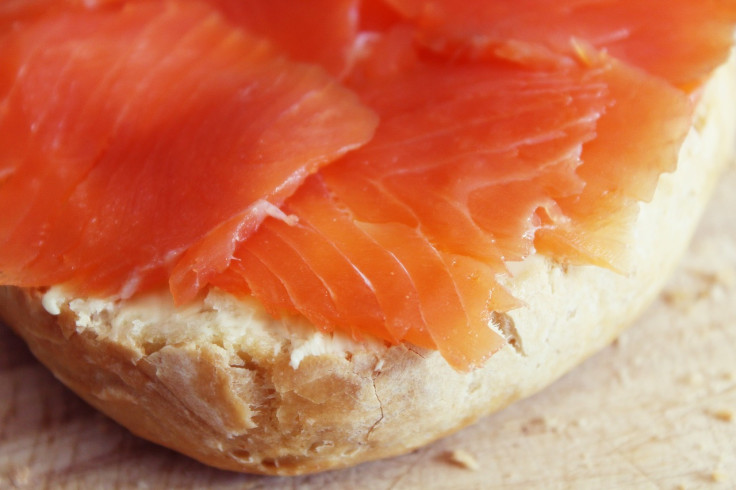Smoked Salmon Distributed In These States Recalled Over Listeria Concerns
KEY POINTS
- The problem was discovered through routine testing by Maryland authorities
- Only the products with a specific lot number are included in the recall
- Customers who have the product may return them to get a full refund
A company is recalling certain smoked salmon products over listeria concerns. The products were distributed in three states and Washington D.C.
It was through "routine regulatory testing" by the Maryland Department of Health that the problem with the recalled salmon products was discovered, according to the company announcement on the U.S. Food and Drug Administration's (FDA) website.
Listeria monocytogenes is the germ that can cause the "serious" infection called listeriosis. People can contract the illness if they consume food that is contaminated with the germ.
While people considered to be "healthy" may experience short-term symptoms, including high fever, nausea and diarrhea, the infection can be more serious in children, the elderly and those who are frail or whose immune systems are weakened. In pregnant women, the illness may be mild in the mother but cause severe disease in the fetus or newborn. It may also cause stillbirths and miscarriages.
In the case of the current recall, there have been "no illnesses" reported so far. What exactly caused the issue, however, is still under investigation by both the company and the FDA.
The recall affects the "Giant Brand Wild Caught Sockeye Smoked Salmon" in 4 ounces with the UPC Code 68826715832 and Lot number R4132. They came in printed cardboard sleeves and would have been refrigerated.
Seven Seas International USA, LLC Voluntarily Recalls Giant Food Private Label Wild Caught Alaskan Sockeye Smoked Salmon Because of Possible Health Risk https://t.co/Unz5reDjPz pic.twitter.com/htjplmi9m0
— U.S. FDA Recalls (@FDArecalls) November 8, 2022
The recalled products were distributed in Maryland, Virginia, Delaware and Washington D.C. Those who find that they have the recalled product are being advised to discard it or take it back to where they bought it to get a full refund.
In total, some 540 cases of the product are being recalled. Customers with questions about the recall may call the company at 1-888-627-5668.
According to the U.S. Centers for Disease Control and Prevention (CDC), those who are concerned that they ate something that may have been contaminated with L. monocytogenes should seek medical care and inform their doctor about the potentially contaminated food if they are experiencing symptoms within a span of two months after eating the food.
"This is especially important if you are pregnant, age 65 or older, or have a weakened immune system," the agency noted.
If unsure what to do after consuming potentially contaminated food, one should contact their health provider.

© Copyright IBTimes 2024. All rights reserved.






















